WINTER’S TALES: DESPERATE DRUG DEALERS AND MISGUIDED CHARITY PART 2
After ‘Fever’, Winter went back to directing commercials - devoting his spare time to developing features. I found myself shooting a commercial in South Africa with a British agency, and the creative director who wrote the commercial was a guy called Chips Hardy,” he said (If the name sounds familiar, Chips Hardy is the creator of the BBC show ‘Taboo’, which stars his son, Tom Hardy).
“We had a lot of time on our hands and we started chatting.
“It turns out we had a lot of similar interests - we were both interested in geopolitics, the great seismic changes that were occurring and how those changes were going to impact different societies.
“He’s a brilliant writer, and he already had the genesis of the idea - something around the world of foreign aid. It was an area I already knew quite a bit about as a punter. It’s a heroic and important thing to do, but there are aspects that can descend into modern-day colonialism - this idea of the ‘white saviour’, a white, privileged middle-class person going to some war-torn country under the guise of saving it and often inflicting untold damage on that country both economically and in other ways, and leaving it in a ravaged state. As a framework, it seemed like a great idea to us… we loved the Altman movie ‘MASH’, and that was where we wanted to go - a film that took place in a small, war-torn African country that had been descended upon by a battalion of Western aid and other organisations that were there to help.
“It would be a small ensemble film, taking place in the tents, in the backwaters, in the bush - to take you on that journey of descending on a place with the best of intentions, and leaving it in a much worse condition than when they got there. We were driven by the idea of telling a story that, like ‘MASH, was at its root very dark and despairing, but in a way that had levity… a barbed edge.”
An ardent fan of Michael Maren’s book ‘The Road To Hell’, Winter was keen to make the film as accurate as possible.
“Chips had done a lot of research before he got to me, and I had a very good grip on the humanitarian aid world,” he said.
“But we still did a lot of research - we went to the Gaza Strip together, and spent a lot of time there with the UN. We had full carte blanche with the UN, and we were able to travel into pretty much every zone and see how things were run. There’s wasn’t much of an American or English presence at the time - the UN we were dealing with were mostly Palestinian leadership and a few English people. We were really able to get a sense of the precarious state of the Palestinian situation, and we also travelled around Africa, going into these missions to see how these groups operate. One of the things we noticed was that you had these cultures that sprouted up - not just in humanitarian zones, but also in war zones - you’d find these people who are career hot zone junkies. They live for the moment, they live for the excitement, and they like the feeling of being detached from the banality of a regular existence back home. They’re usually paid by some form of organisation, their lives are covered and they have this kind of elite sense of themselves that they’re a notch better than the average person because they’re doing this great work. Then you’ve got the careerists - people who’ve figured out how to game the system and are making vast amounts of money. We encountered someone who just figured out how to game one particular entity and was very high up the ladder. He made sure he was away from his wife and kids as much as possible, drank gin all night long before heading along to the next humanitarian crisis where he didn’t do much of anything. For him, it was a comfortable bureaucratic job.”
For Winter and Hardy, truth ultimately proved much stranger than fiction - with even the more outrageous parts of their original draft proving tame in comparison to what was actually happening.
“We started writing fiction, but what we ended up writing was almost 100% based on fact. Almost everything in there was taken from things we witnessed firsthand or heard about from people we were close with who were embedded in that world and experienced it themselves. There really is nothing that happens in that script that hadn’t happened in real life. The finale - that feeling of finally getting something working and it just gets bombed to shit by your own people… that’s a common occurrence. The graft, the mechanisms by which people made money and even the notion that a British or American corporation will go down there to try and make a deal for a PR coup that’s also a huge tax write-off is based on fact. Some of it was so outrageous that we had to temper it down so it wouldn’t seem completely implausible.”
The resulting script, ‘Acts of Charity’, sees ambitious British Exec Patrick Stanton sent to the small, fictional country of Esmalia to offload four million surplus medi-wipes - a move that will help the company get rid of useless stock, while at the same time strengthening its bottom line. To seal the deal, he needs his former mentor, Dr Martin Kennedy - an academic who’s been living on the ground in Esmalia - to give his blessing to the deal. Setting off to the land he and his friends describe as ‘bumfuck Africa’, Stanton quickly finds himself out of his depth. He’s got little to no support, and Dr Kennedy is nowhere to be found - working off the grid deep in the heart of the African country. The closest thing Stanton has to an ally is British journalist Thomas Fenchurch, who - occasionally willingly and occasionally not - tries to help Stanton find the good doctor.
On his surreal odyssey through Esmalia, Stanton encounters diplomats and NGOs dining on lavish foods in the middle of a famine, NGO reps almost coming to blows with each other to get in front of an American TV camera crew, aid workers trying to deal with ‘donations’ of utterly useless haemorrhoid cream and religious groups looking to ‘save’ the children. All of this takes place amidst the all-too-real background of civil unrest.
“In a sense, it was almost a parody of Joseph Conrad ,” Winter said.
“I don’t think it was an intentional riff, but there was this notion of mashing up Conrad with Evelyn Waugh - kind of if Evelyn Waugh wrote ‘Heart of Darkness’ “It was a way of looking at colonialism in its modern form in a way that would be extremely jarring and disorienting for people who may view themselves as being on the right side of things. “I didn’t want to preach to the choir and talk about the obvious right-wing factions that go in and create authoritarian states, I wanted to look at the people who were supposedly the good guys and how they’re often from the same place from a colonial standpoint… which is why comedy is more suited to that story. But we were trying to avoid overstating the message - we didn’t want some sort of hero’s journey were he (Stanton) would become some sort of noble warrior. We ended with him being more stripped bare and sent home - knocked sideways by everything he’s been through.”
Despite bearing some similarities to Winter’s character in ‘Freaked’, he had no desire to step in front of the character to portray Stanton (“We wrote that part for John Cusack, that’s who we really wanted,” Winter said). For Fenchurch, Winter and Hardy had one actor in mind for the part of Fenchurch - an actor who, thankfully, was ready to dive into the role.
“Alan Rickman loved it,” Winter said.
“He was a huge supporter and had begun showing it to other people who were also supportive.”
Reading the script, it’s almost impossible to read Fenchurch’s dialogue without hearing Rickman’s dry voice.
“When I read Chips’ first draft of the script, it just screamed Rickman - I remember telling him that if we didn’t get Rickman it would almost be pointless,” he said.
“Once Alan was on, subsequent drafts were given more of a nudge towards his vernacular, but that was all done to Chips’ own ear and it fit perfectly with him.”
Others rounding out the cast would’ve been Emma Thompson and French actress Elodie Bouchez.
Ultimately though, the money just wasn’t there.
“Unlike ‘Weed’. which would have got made if we just kept pushing, this was harder for people to wrap their heads around,” Winter said.
“It was going to cost a fair amount of money - it was a big, global war movie that, at the end of the day, was a dark comedy about a humanitarian crisis. That logline’s a little hard to swallow. And it was at the time when the independent film world was beginning to die - at least in the way it had operated in the past before it would ultimately be reborn by long-form cable TV and online streaming. So we found ourselves with less financiers in the game.”
And while nearly ten years have passed, and Alan Rickman is no longer with us to take on the role of Fenchurch, Winter still remains hopeful that the concept may ultimately still see the light of day.
“It’s still relevant… and it’s something that both of us (Winter & Hardy) would still love to see made at some point,” he said.


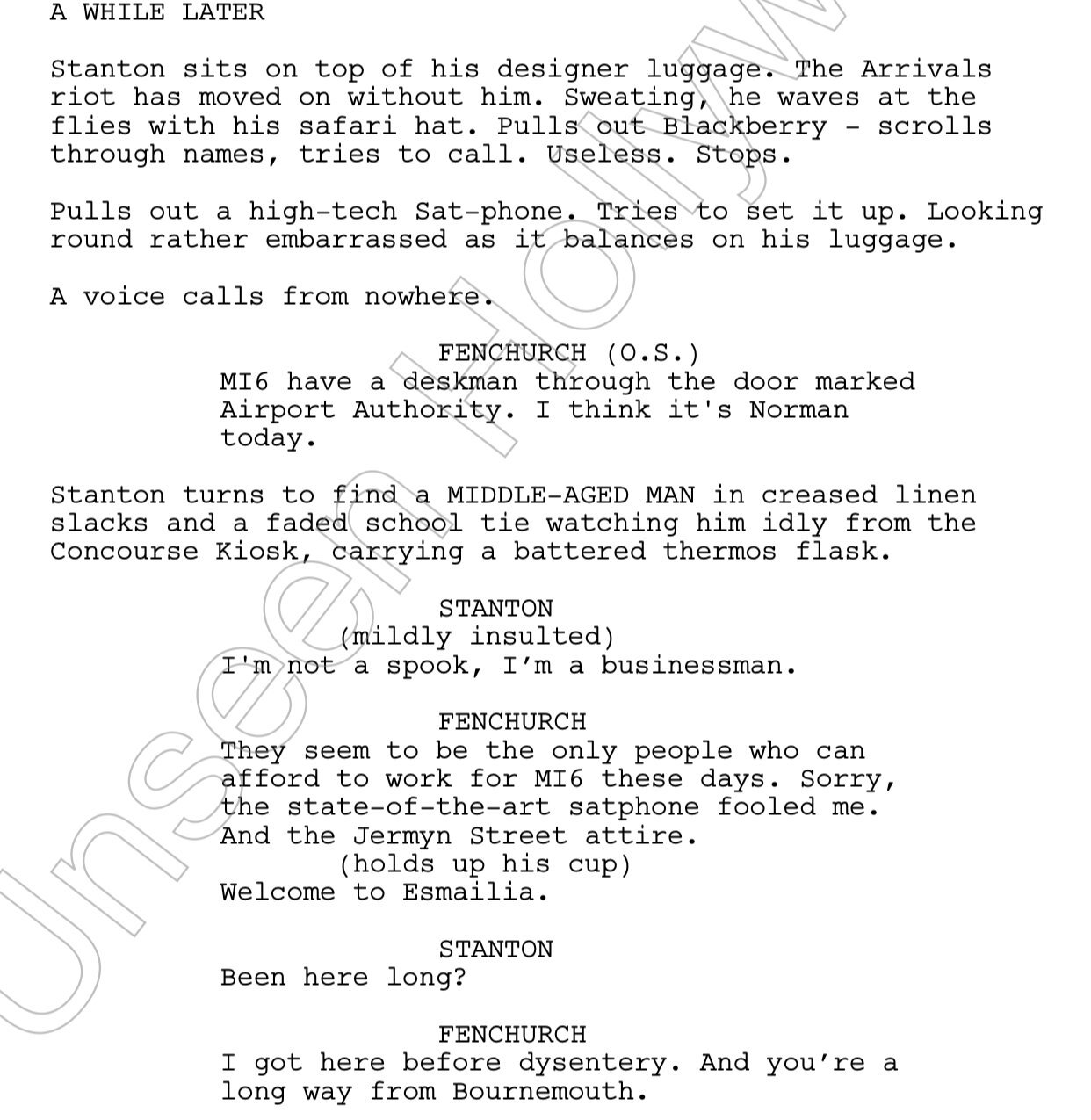
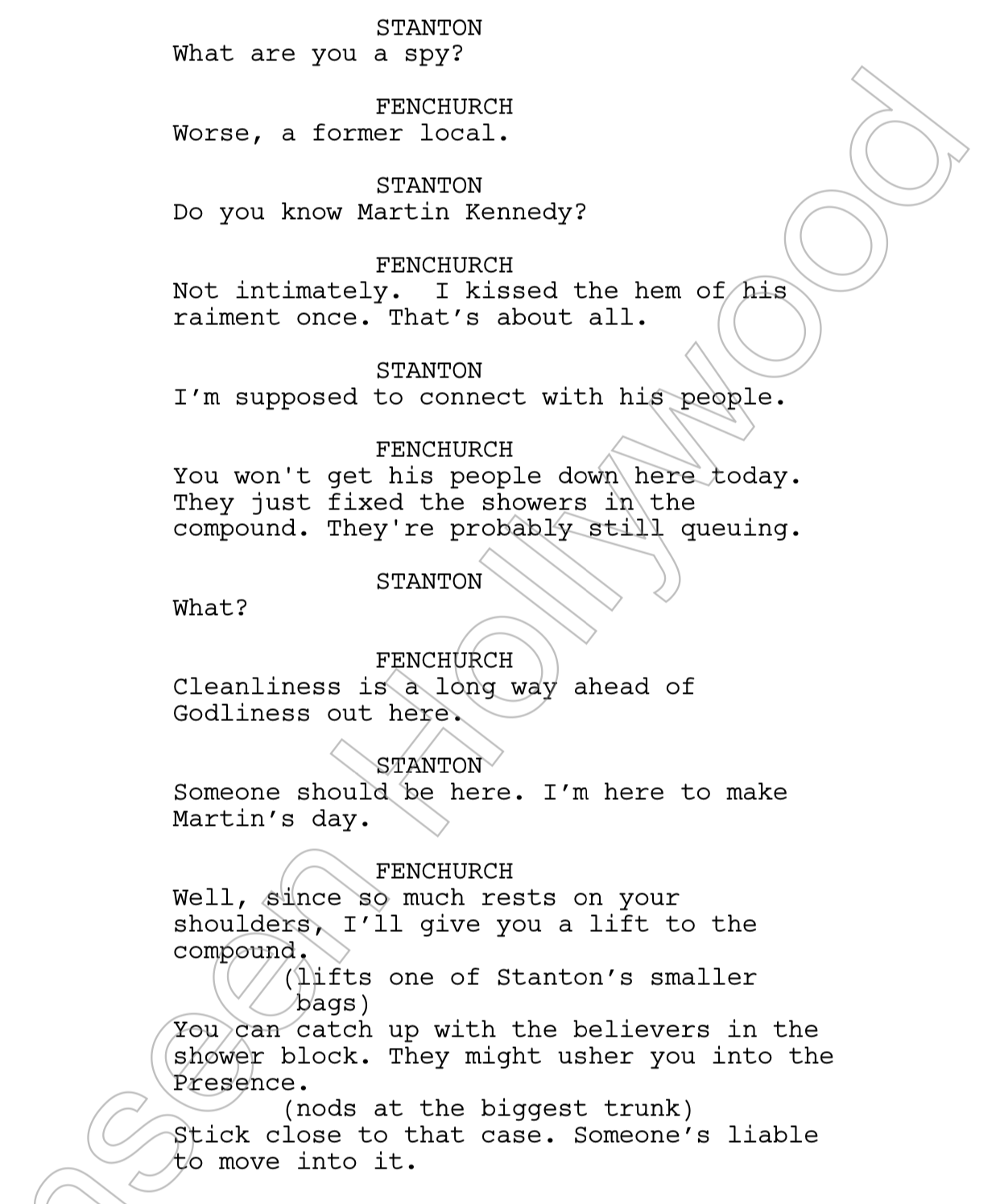
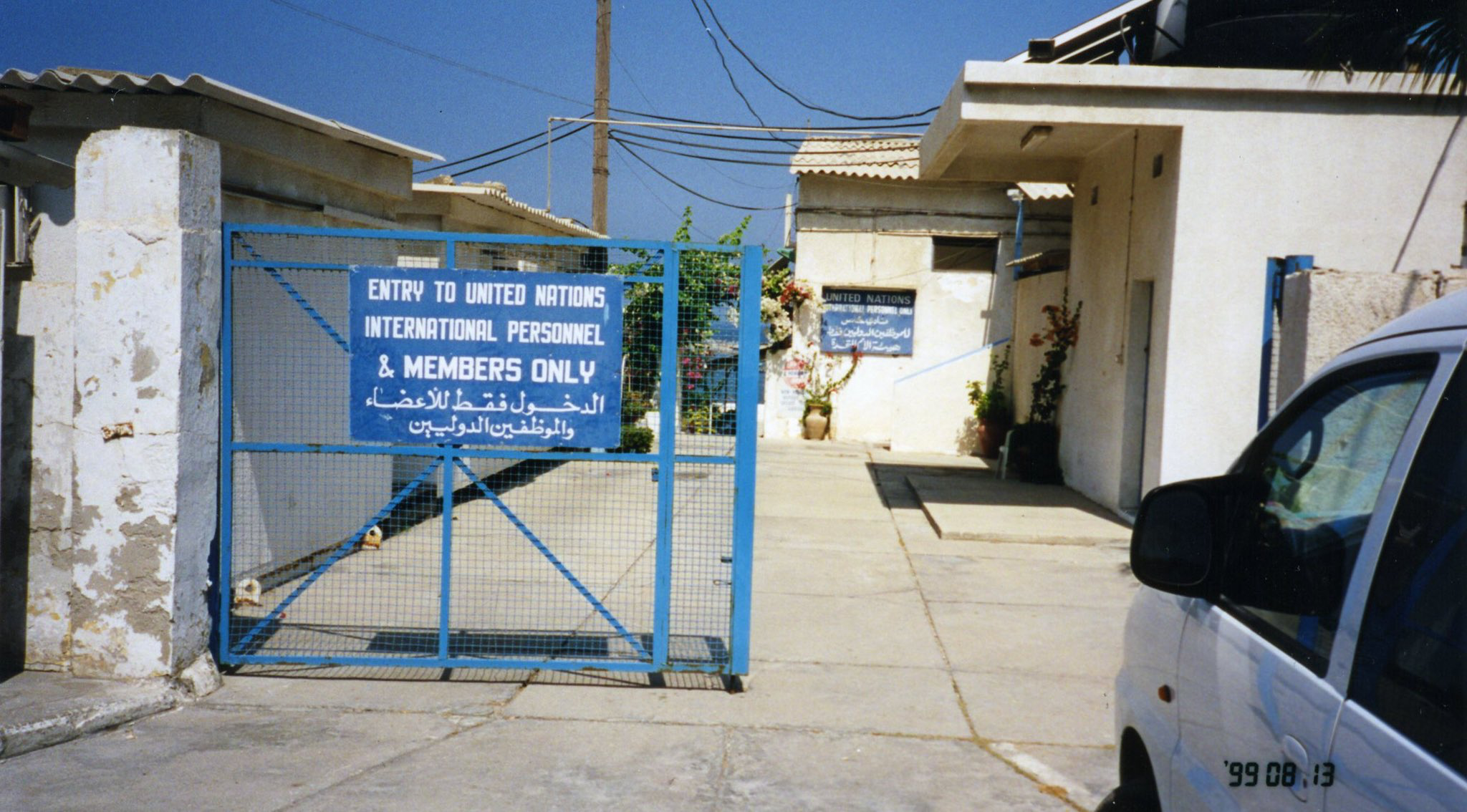
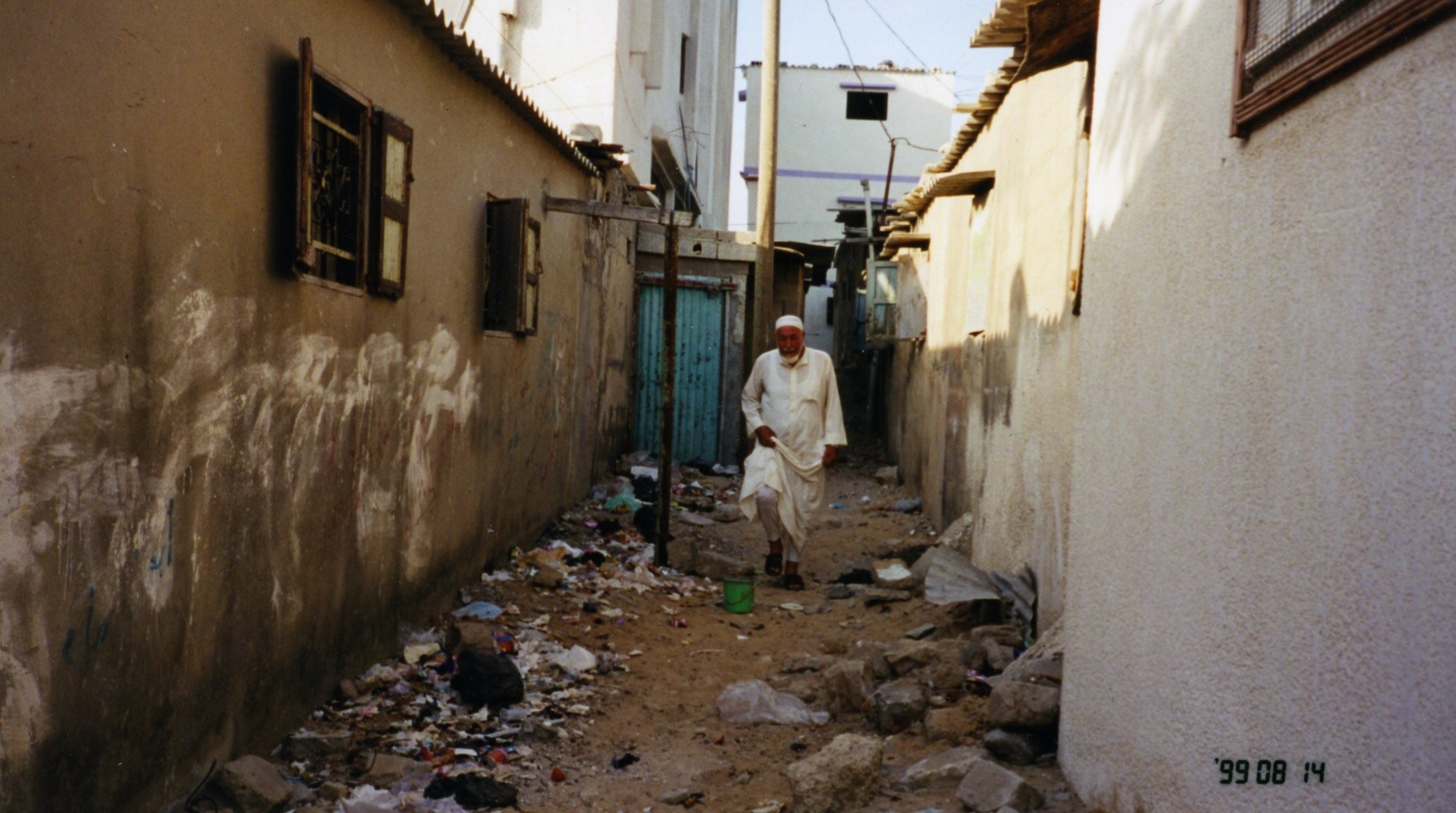
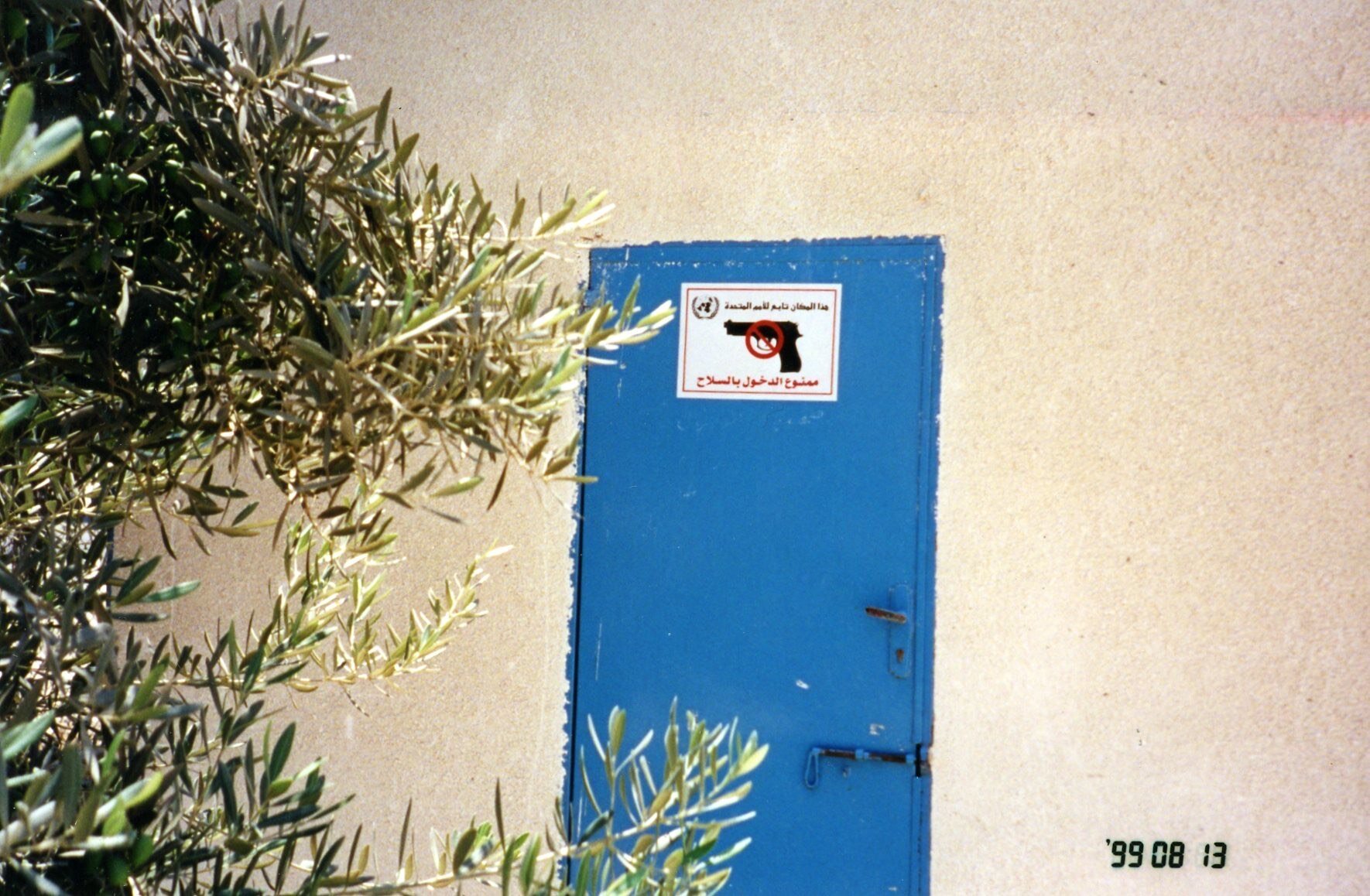
Anotherfilmnerd's earliest cinematic memory was seeing Don Johnson throw up all over a suspect in John Frankenheimer's 'Dead Bang'. Ever since, he's devoted his life to searching out cinema that's weird, wonderful and features vomit in the most unlikely of places.